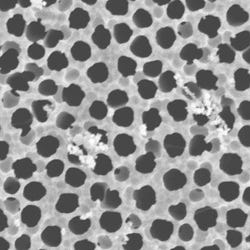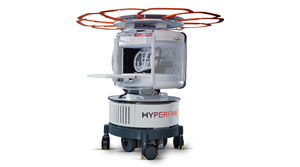Sign up for the QMED & MD+DI Daily newsletter.
BBMAG
April 2, 2010
2 Min Read

atomic-layer-deposition-nanoparticles
Scientists at North Carolina State University (NC State; Raleigh) have published a paper describing the use of atomic layer deposition (ALD) for incorporating "biological functionality" into complex nanomaterials. Authored by Roger J. Narayan, Nancy A. Monteiro-Riviere, Chunming Jin, and Junping Zhang, the paper discusses ALD as a candidate for creating a new generation of medical applications."Atomic layer deposition is a technique that can be used to create thin films for coating metals or ceramics, and is especially useful for coating complex nanoscale structures," explains Narayan, the paper's lead author and a professor in the college of engineering at NC State. "This paper shows how atomic layer deposition can be used to create biologically functional materials, such as materials that have antibacterial properties. Another example would be a material that does not bond to proteins in the body, which could be used for implantable medical sensors."The researchers show that ALD can be used to create films for coating nanoporous membranes, which can be used for filtering out pathogenic bacteria. "The film could also provide antimicrobial functionality to neutralize bacteria," Narayan adds. The researchers found that membranes treated with one such film were able to neutralize two common pathogens: E. coli and Staphylococcus aureus.Funded by the National Science Foundation (Arlington, VA) and the National Institutes of Health (Bethesda, MD), the research is detailed in "Atomic Layer Deposition-Based Functionalization of Materials for Medical and Environmental Health Applications," published in the March issue of Philosophical Transactions of the Royal Society A.About the Author(s)
You May Also Like


